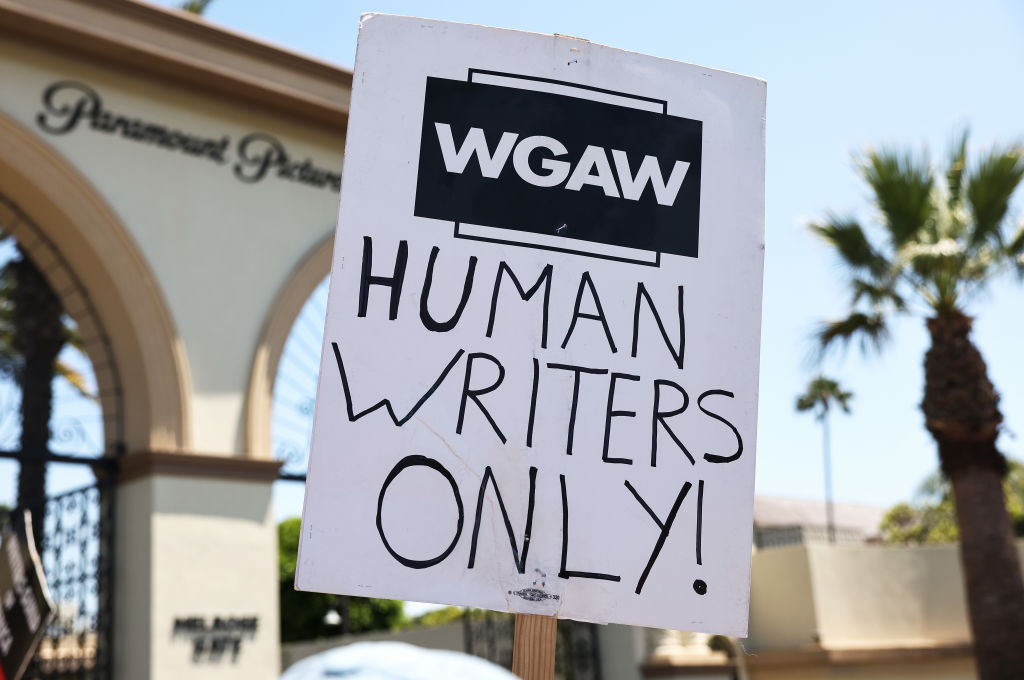
The battle over intellectual property (IP) ownership and the use of artificial intelligence (AI) continues as high-profile authors like George R.R. Martin are suing OpenAI for copyright infringement. Additionally, a major factor in the WGA/SAG-AFTRA strikes has been negotiating protections of writer’s contributions and actor’s likenesses. Even tattoo artists are questioning whether their works on celebrities can be reproduced in video games. The latest development concerns feeding literature into AI to train language models using the IP of writers without their consent.
To further understanding of this complex issue, Texas A&M University professor Dr. Peter Yu provides insight on IP, legal concepts and ownership when it comes to artificial intelligence. Yu, Regents Professor of Law and Communication and director of the Center for Law and Intellectual Property, also holds dual appointments in the Department of Communication and Journalism and the School of Law.
What is IP? Does it include art and literature?
IP covers everything from literary and artistic works to pharmaceutical products to trademarked logos. Many use this term to refer to creations of the mind. When used in a non-legal context — for example, in day-to-day discussion of movies or video games — the term “IP” sometimes carries a broader coverage than specified by law. IP law carefully delineates the boundaries of protection and the conditions under which protected works can be used without authorization — for example, when a Texas A&M student makes a fair use of a copyrighted textbook.
Is there a difference between sharing, referencing, being inspired by or “using” another’s IP?
How we use another’s IP can affect different branches of IP law or varying types of IP right. In U.S. copyright law, for example, referencing or “being inspired by” (without copying) never amounts to infringement. Sharing, however, may infringe on the reproduction right, the distribution right or other rights, depending on the circumstances.
One area that has garnered growing attention involves the creation of works in the style of another author or artist — for example, using AI to create songs imitating those performed by the Beatles, BTS or Drake. While copyright law generally does not protect genres and styles, the right of publicity prevents the unauthorized commercial use of an individual’s name, likeness, voice or other personal attributes. Indeed, the past few months have seen some interesting discussion about whether we should expand the right of publicity or create a new sui generis (“of its own kind”) right to protect authors and artists against AI-generated imitative works.
How does AI affect IP law and ownership?
Among the different areas of IP law, copyright is the most relevant to art and literature. AI has raised at least three distinct issues in this area. Although this issue has sparked a spirited debate about the future of copyright protection, courts and the Copyright Office agree that these creations receive no copyright protection.
The second issue pertains to what policymakers and commentators have referred to as “ingestion” — whether copyrighted works can be used to train AI systems without the authorization of copyright holders. Feeding A Game of Thrones and other books written by George R.R. Martin into an AI system as training data will help the system learn how humans communicate — and, more specifically, how Martin uses language to tell his stories.
Based on current law, using a copyrighted work to train an AI system is unlikely to constitute copyright infringement, especially if that system has not retained a copy of the original work after completing the training process. However, there remains wide disagreement over whether an AI system is allowed to generate without authorization creations that are substantially similar to those copyrighted works on which the system was trained. There are ongoing lawsuits targeting the unauthorized use of copyrighted works as training data, including the one filed against Open AI by Martin, John Grisham and other high-profile authors. These cases will shed light on this debate.
The final issue involves the use of AI in the IP environment — for example, for securing, managing or enforcing IP rights. While it is exciting to use AI to determine whether a copyrighted work is protectable or has been infringed, many people understandably will find it disconcerting when AI systems take over decisions that have been traditionally made by the Copyright Office or federal judges. Also well documented are the biases found in AI systems, many of which remain elusive and difficult to correct.
How do you envision negotiations of IP ownership being carried out in the future due to AI, streaming and corporate interest?
In the future, parties on both sides of the negotiations will pay greater attention to the use of creations as training data or underlying materials for developing AI-generated works. Some authors are unwilling to permit such use even if they are handsomely compensated. Many simply loathe the idea of their valuable creations being used as mere raw materials. Other authors, however, want to be fairly compensated. If a licensing market for the use of copyrighted works as training data or underlying materials emerges, these authors demand a share of the licensing revenue. How big that share is will be a big question in future negotiations. Finally, some authors understand the importance of training data for advancing AI and related technology. So, they gladly make their creations publicly and freely accessible for use in research, training or other purposes.
Ultimately, what goes into the negotiations depends on the specific provisions in IP law. Those provisions will provide the background against which the parties negotiate. To protect the public interest, some jurisdictions also have laws prohibiting parties from contracting around select legal provisions, including those in the IP area.
